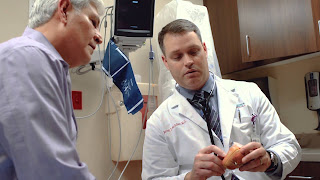Written By: Rachael Kaine
Becoming an Expert After a Cardiology Fellowship
The study of cardiology deals with learning information about the most important organ within the body: the heart. Responsible for pumping blood and keeping your other organs, muscles and parts functioning properly, the heart needs to be as healthy as possible. Cardiologists work toward this ultimate goal, helping patients become and remain healthier, with properly functioning hearts. There is a great deal to learn both academically and through “on the job” experience, and so completing a Georgetown cardiology fellowship is essential to ensure that you are properly prepared to handle the cases of patients on your own. More information about this residency as well as others offered by this organization can be found by visiting http://www.medstarhealth.org/.
Fast Facts Learned During a Cardiology Fellowship
- A cardiology fellowship will prepare you for making important decisions that will impact the future lives of patients. Proper care is essential to being healthy, and the heart is the right place to start.
- Though the first pacemakers plugged into a wall socket, the medical community has come a long way since then. Pacemakers are used to control the rhythm of the heart’s beats via low energy electrical impulses. They are operated via internal sources, making it possible for patients that have them to lead normal and full lives, not stay close to a source of electricity.
- While not all patients are healthy enough overall to exercise, simply putting the body through a little extra exertion is the best way to promote heart health During your fellowship, you’ll learn techniques to get patients moving, what they are capable of doing, and how to help them through their journey.
- It’s not just regular people that have heart trouble and need the services of cardiologists, even celebrities sometimes need help. Open heart surgery to correct different problems has been utilized by Bill Clinton, David Letterman, Regis Philbin and even Barbara Walters.
- Cardiology fellowship graduates will have learned many medical facts and techniques that can be used to help patients, but one thing that must come from within is a genuine desire to help people. Taking care of people must be done completely; learning to listen to, respect and include patients in all aspects of their care is essential to success. Doctor/patient relationships rely on trust and honesty, and must be built and nurtured over time, especially when something as important as heart health is at stake.






